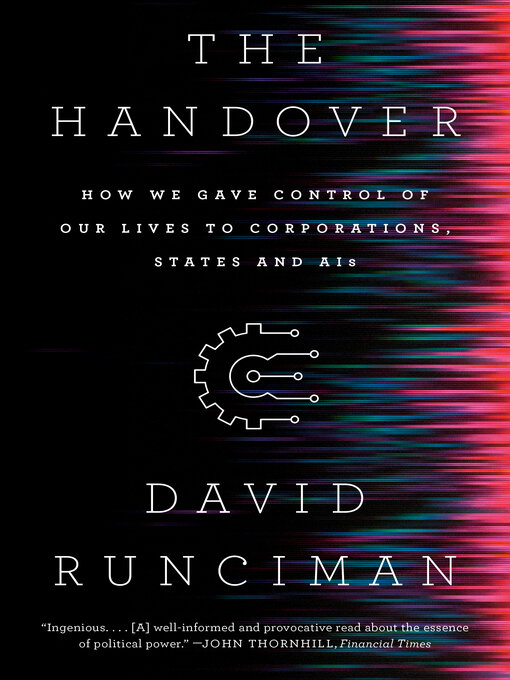"[W]itty and refined . . . Runciman's point is that the alliance between even a democratic government and a safe-ish A.I. could derail civilization." —Gideon Lewis-Kraus, New Yorker
An eminent political thinker uses our history with states and corporations—"artificial agents" to which we have granted immense power—to predict how AI will remake society.
Countless books, news reports, and opinion pieces have announced the impending arrival of artificial intelligence, with most claiming that it will upend our world, revolutionizing not just work but society overall. Yet according to political philosopher and historian David Runciman, we've actually been living with a version of AI for 300 years because states and corporations are robots, too. In The Handover, Runciman explains our current situation through the history of these "artificial agents" we created to rescue us from our all-too-human limitations—and demonstrates what this radical new view of our recent past means for our collective future.
From the United States and the United Kingdom to the East India Company, Standard Oil, Facebook, and Alibaba, states and corporations have gradually, and then much more rapidly, taken over the planet. They have helped to conquer poverty and eliminate disease, but also unleashed global wars and environmental degradation. As Runciman demonstrates, states and corporations are the ultimate decision-making machines, defined by their ability to make their own choices and, crucially, to sustain the consequences of what has been chosen. And if the rapid spread of the modern state and corporation has already transformed the conditions of human existence, new AI technology promises the same.
But what happens when AI interacts with other kinds of artificial agents, the inhuman kind represented by states and corporations? Runciman argues that the twenty-first century will be defined by increasingly intense battles between state and corporate power for the fruits of the AI revolution. In the end, it is not our own, human relationship with AI that will determine our future. Rather, humanity's fate will be shaped by the interactions among states, corporations, and thinking machines.
With clarity and verve, The Handover presents a brilliantly original history of the last three centuries and a new understanding of the immense challenges we now face.


